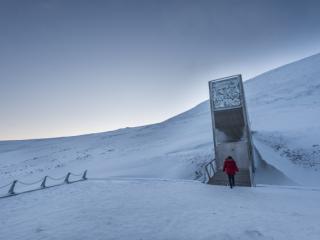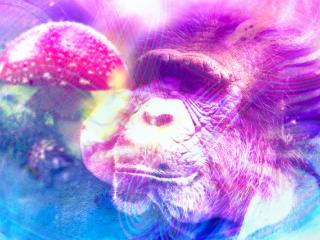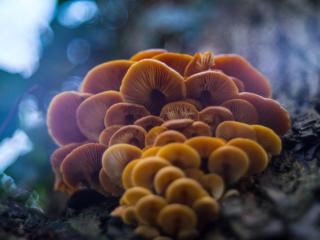Science journalist Mark McClusky tells Anne that the secret to ever-increasing athletic performance is cutting-edge science and technology.More
Science and Technology
Eye-to-eye epiphanies are experiences of kinship with the more-than-human world. Gavin Van Horn says kinship is also something to practice. He shares a few thoughts about how.More
Helen Macdonald's book "H is for Hawk" turned her goshawk Mabel into one of the most memorable literary characters of recent years. Mabel is no longer with her, but Helen now has a new avian companion — an ornery and very smart parrot.More
If a disaster wiped out our ability to grow crops, how would the survivors rebuild civilization? Back in the 1990’s Cary Fowler wondered the same thing. So he created the Svalbard Global Seed Vault – otherwise known as the Doomsday vault.More
Married couple Ilan Kedan and Christina Lombardi work at Cedars-Sinai Hospital in Los Angeles, and they each decided to participate in two separate medical trials for COVID-19 vaccines.More
Depending on where you live, winter can be tough to get through. It’s cold, it gets dark early, the weather’s messy. Naturalist Bernd Heinrich shares some amazing stories about the ingenious ways animals survive winter.More
Knowing how animals survive winter is good, but how do animals sound in winter? For that we turn to Douglas Quin, an award-winning sound designer and composer whose album "Fathom" contains underwater field recordings from the polar regions of the earth.More
Guy Leschziner is a sleep physician, running one of the largest sleep clinics in Europe, with a specialty in bizarre conditions. He told Steve about the moment he first realized how much sleep matters.More
Magic mushrooms go way back in human history. Some people even believe psychedelic mushrooms helped create human consciousness. We examine the "Stoned Ape Theory."More
Paul Stamets may be the most passionate mycologist on the planet. He tells Steve why new medicines and technologies derived from mushrooms might save life as we know it.More
Producer Charles Monroe-Kane's son goes to a school with a 13.8% non-vaccination rate. So why aren't his neighbors vaccinating their kids? Charles went out searching for the answer.More
Long before Timothy Leary's study of LSD, psychiatrist Stanislav Grof launched his own investigation of psychedelics. Since then he's devoted his life to exploring non-ordinary states of consciousness.More
Why have some parents started second guessing their pediatrician’s advice, to the point that measles is showing up in Disneyland? Historian Arthur Allen explains how we got here.More
Losing yourself in wilderness can also be a way of finding yourself, and one place you can do that is in our national parks. Renowned nature writer Terry Tempest Williams reflects on her love for these parks — especially those with desert landscapes.More
It turns out that even the most basic things we believe about ourselves are often wrong. Neuroscientist Julian Keenan says it has to do with how the brain works. He’s the author of the “Face in the Mirror: How We Know Who We Are.” More
This year marks the 50th anniversary of the death of Rachel Carson, a pioneer of the environmental movement. Rob Nixon holds the Rachel Carson chair in English at the UW-Wisconsin. He says she was something of a reluctant activist. More
Richard Holmes talks with Steve Paulson about how art and science influenced each other during the Romantic period.More
Jonah Lehrer says that the great French writer Proust described insights into the way the mind processes memory long before the scientists could prove how the brain worked.More


















